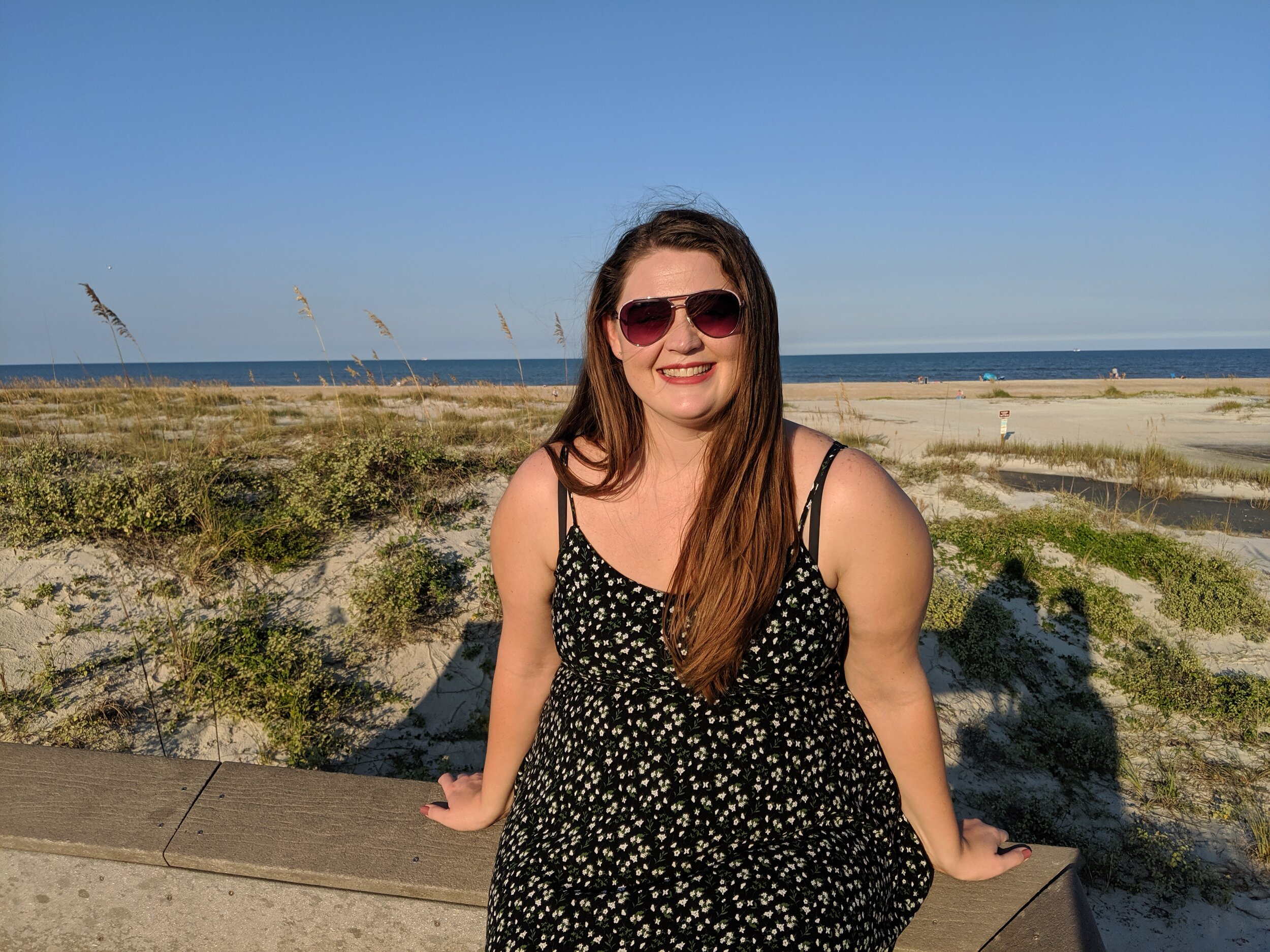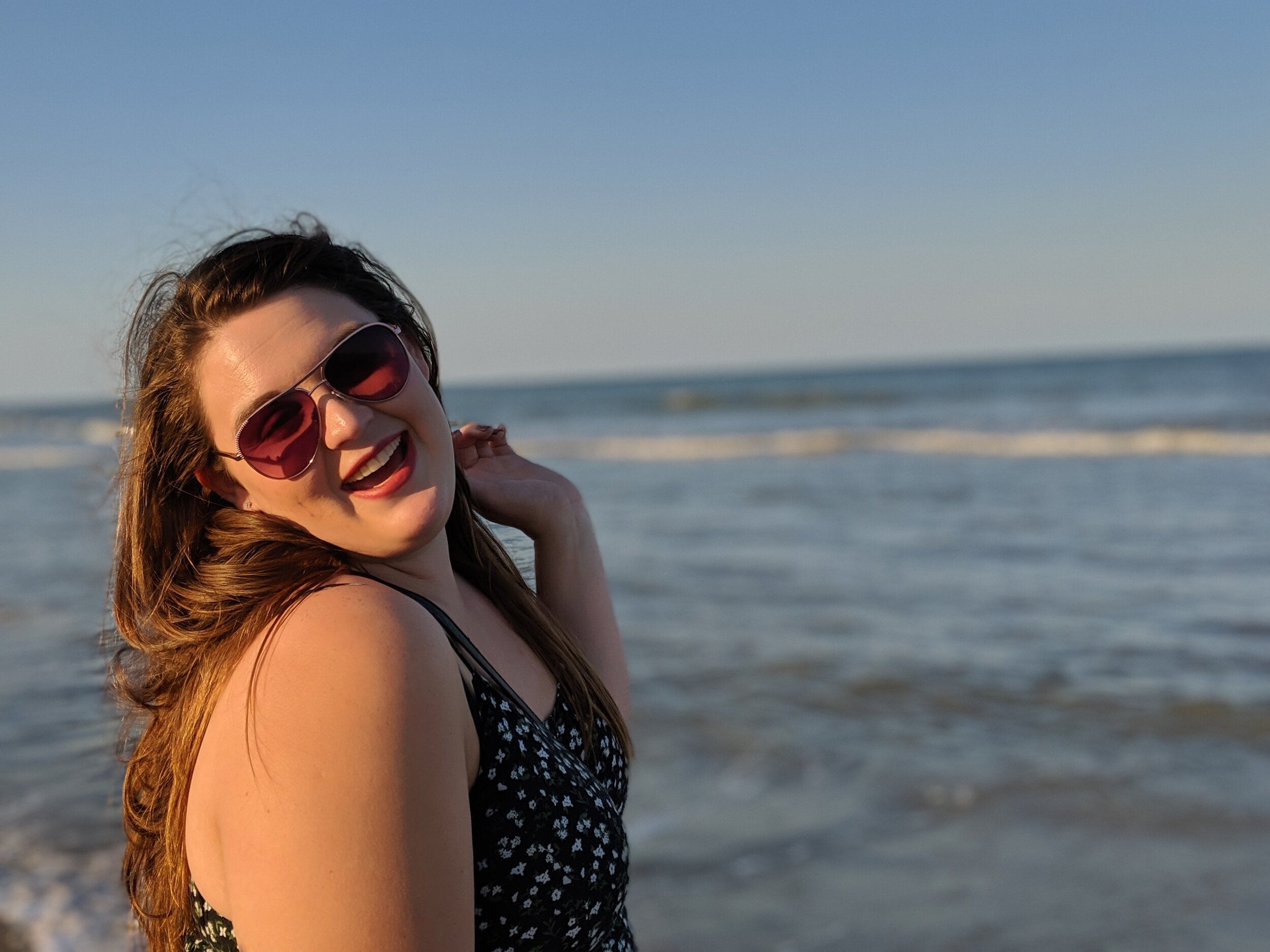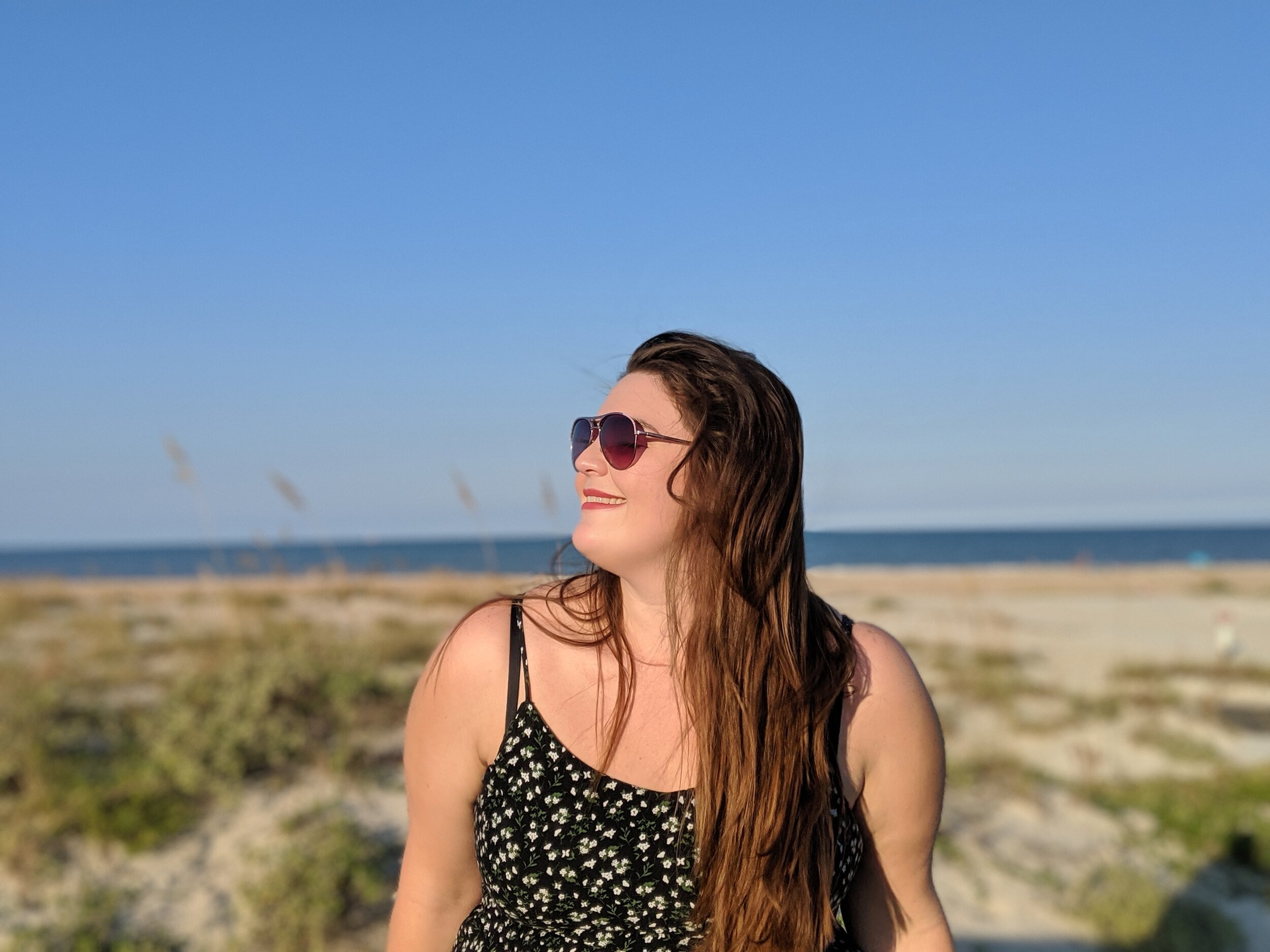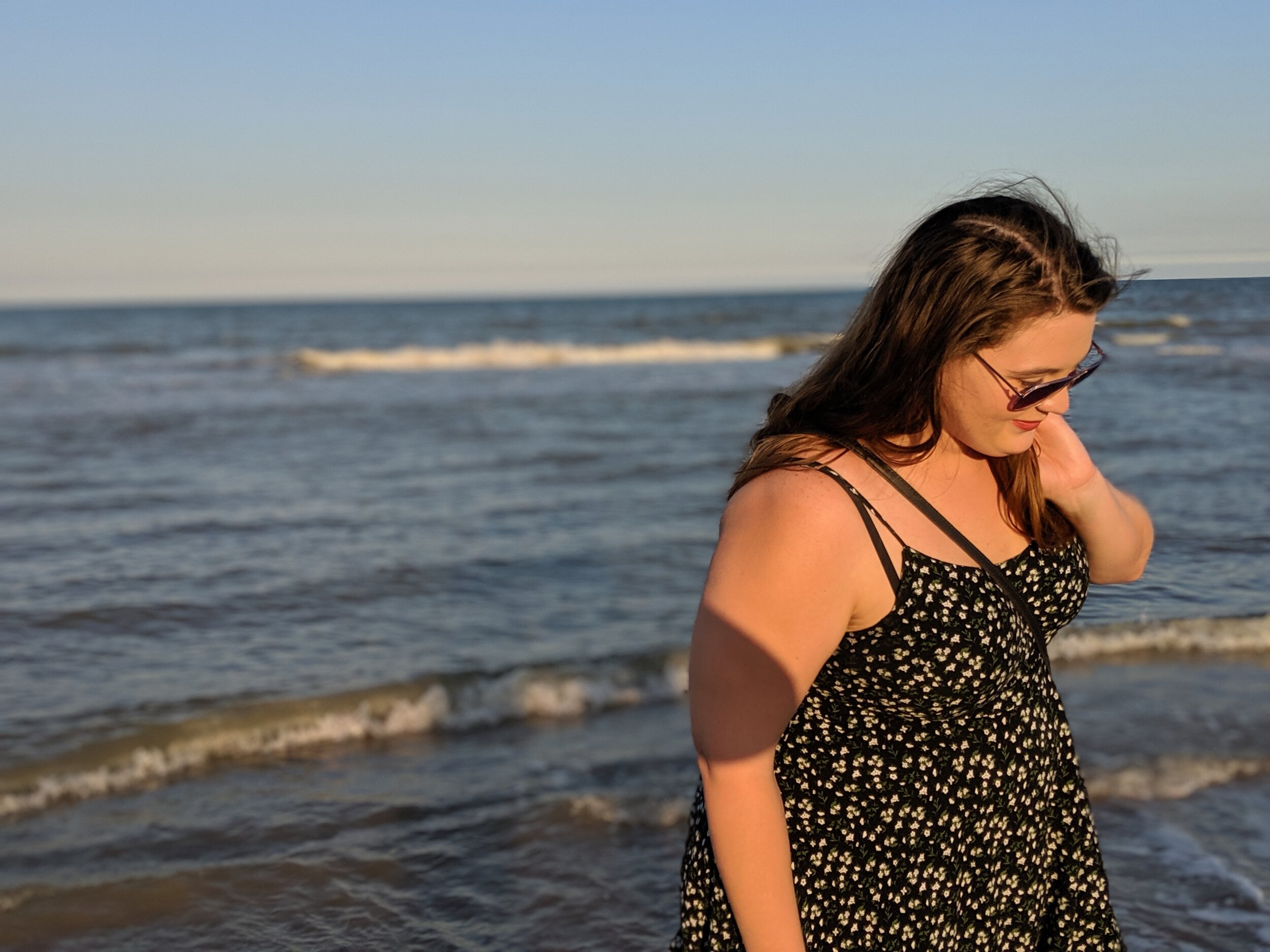Southern Siren
Rachel Potts
I spent a majority of my girlhood in Macon. Almost immediately upon my arrival as an eight year old, I befriended a girl who lived a few doors down, was home-schooled like me, and had a strangely similar name. Rachel Potts became my adventure buddy and best friend. On a weekly basis we would explore the woods near our neighborhood, choreograph dances to our favorite songs, invent imaginative stories, and rattle off an ever growing list of all the things we would accomplish in our lives.
Most memorably, we used a fledgling 90’s computer program to design a magazine we entitled Working Woman. In it we composed artilces about how to do it all and look fantastic throughout. Being of ages in the single digits, we clearly had no real idea of what adults were balancing, but our impressions and imagination filled in the gaps.
Eventually, I lost my childhood best friend to her family’s move to Oregon, but we remained connected none-the-less. We wrote letters at first and eventually updated to the pioneering Facebook to keep in touch.
Ultimately, her life brought her back southward in a move to Florida, just as my life took me northward. But just last year, for the first time since childhood, we reconnected in person on her visit to Macon. She was as beautiful and creative and fun as I remembered and our compatability presisted. Since then, we’ve been able to manage a few more in person visits, including a recent one on the beaches of St. Augustine for this interview.
Her committment to the childhood dream of becoming a writer is impressive and tangible. She recently published Just Down The Street, Across The Ocean and continues to create compelling, relatable works. I am proud to bring you this spring’s Siren of the Season, Rachel Potts.
Rachelle Wilson: Tell me a bit about your relationship to writing. How our childhood dreams of being a writer took root and when you began taking it seriously?
Rachel Potts: Writing has been a part of my life for as long as I can remember. I have childhood memories of writing stories before I could even write. I would have (they might use the word “force”) my mom or older sister to sit down and write down a story I had in my head. Unfortunately, I don’t have those journals anymore, but I do have the first story I wrote on my own. I wrote it probably around the age of 7 and even illustrated it (I cannot and have not ever been able to draw well). With all of that being said, I think that the idea of actually becoming a writer took root in 6th grade. My 6th grade teacher was the first person outside of close friends and family who told me I was a talented writer and that I shouldn’t give it up. I had written a fictional story about the water cycle and she praised it. She recommended that I go into a summer program for writing for children at Mercer University. I did and at the end of the program our favorite story was published in a book with all of the other students’ stories. That was the first time I got to experience the thrill of seeing my work in print. I still have that book.
RW: What was the journey of writing a novel like?
RP: It was incredible…y difficult. But it was also the most rewarding experience I’ve gone through. I’ve actually completed 3 novels, but 2 were in high school when I was a writing machine. I also never intended to publish them. My most recent novel, Just Down the Street, Across the Ocean, took years to complete. Mostly because of distractions. I also think it was because I knew I wanted to publish it and I kept getting in my own way because, well, publication is a scary thing. It took me about 2 years to complete the first draft. Once that was completed I went to Paris to complete my research and make sure it was authentic-ish. It took 3 years for me to finish the editing process and finally self-publish it.
Going through all of that taught me a lot of lessons. It taught me the importance of ignoring unnecessary distractions (though, admittedly, I’m still working on that), the importance of editing but also not over-editing, confidence, and probably most importantly, finding a good support group.
RW: How did you know what you wanted to say?
RP: I wrote an article titled “Some Things You Should Know About My Book,” and in it I describe how this story is very much a love letter to Paris. I have been to the City of Love many times and knew that I needed to use it as a setting in a book. It was a very important dedication to me and I developed the story around the setting.
The beginning of the plot was developed to closely resemble what I was feeling in my own life at the time. I had recently graduated college but felt, at the time, that I was at a dead end job; I wasn’t sure I enjoyed it anymore and felt that there was nowhere to grow. I was starting to get inklings of unhappiness in my relationship and that resulted in an overwhelming feeling of loneliness. As I processed through all of those feelings, I knew I couldn’t be the only one who had experienced it. So, I created Katherine’s journey to explore that idea of feeling trapped and alone. As though she had lost a part of herself somewhere in the process of growing up.
RW: When did you first feel like a writer?
RP: This is a great question! It took me years to finally be confident enough to call myself a writer. It started with a quote I saw somewhere on the internet about how being a writer isn’t about being published. If you write, you are a writer. It was probably more elegant than that, but, regardless, it’s what made me start timidly referring to myself as a writer. Saying, “I’m a writer” versus “Oh, I write,” totally changes how you start to view yourself. That’s when I really started to take myself seriously.
With that being said, I didn’t wholly feel like a writer until I joined a writing critique group in 2017. After spending several months with the group members, all of us sharing and critiquing each other’s work, I finally felt completely confident enough to yell it from the rooftops, “I AM A WRITER!”
RW: How has your Southern childhood shaped you, creatively or otherwise?
RP: I think my Southern childhood was instrumental in making me who I am today, both as a person and as a writer. I’ve already mentioned my 6th grade teacher and Mercer University, but before that I was homeschooled. I really think being homeschooled as a child enabled me to explore the world of writing that I otherwise would not have been able to. When I had an idea, I was able to almost immediately explore it without being encumbered by a schedule or homework.
As a homeschooled child, my parents were highly involved in a homeschool coop group with several other parents in the Macon area. This helped me expand my boundaries, make close friendships, and test my creativity in ways that I never would have gotten the opportunity to do any other way. I find it highly unlikely that I would’ve had those experiences had I grown up anywhere else. I truly cherish that upbringing.
RW: What does it mean to you to be Southern?
RP: When I think of being Southern, I think of warmth. It is a feeling that follows you wherever you go. The South is where I learned that sometimes gifting food can speak louder than words, a smile and kind word can go a million miles, and that your door should always be open to help out a friend or neighbor. These are lessons I’ve taken with me no matter where I’ve ended up.
RW: Who are some prime southern female voices/influences in your life?
RP: Without a doubt, the author Kate Chopin. Her novel, The Awakening, has been incredibly influential to me. In fact, it was the journey of Edna Pontellier that partially inspired me to explore those feelings of being trapped, unhappiness, and loneliness with my own character. It is one of my favorite books and one of the few books I have reread multiple times.
RW: What do you wish people knew about southern womanhood?
RP: This is kind of a difficult question. Especially since I have not really experienced womanhood in “the South” (I think most people don’t consider Florida to be part of “the South” in that sense). So, I guess I will try to answer it in terms of what I wish people knew about womanhood in general. And of course I could go on about that for pages and pages. I will narrow it down to two attributes – strength and kindness. There are an innumerable amount of women that I have met that have gone through some incredible hardships. These women refuse to give up. They do whatever it is that they need to do and they come out of it stronger than ever. And then they use that strength to help others. It’s just beautiful to me how women can overcome so much and yet still show kindness. Women are incredibly resilient that way.
Rachel Potts is originally from Portland, OR but spent some of her childhood in Macon, GA and currently lives in Tampa, FL. She has been storytelling since before she could write and writing since learning to hold a pen. With a B.A. in English Literature from the University of Central Florida, Rachel continues to bring her talent and imgination to us through the written word. Visit her website to stay connected to her upcoming works.








